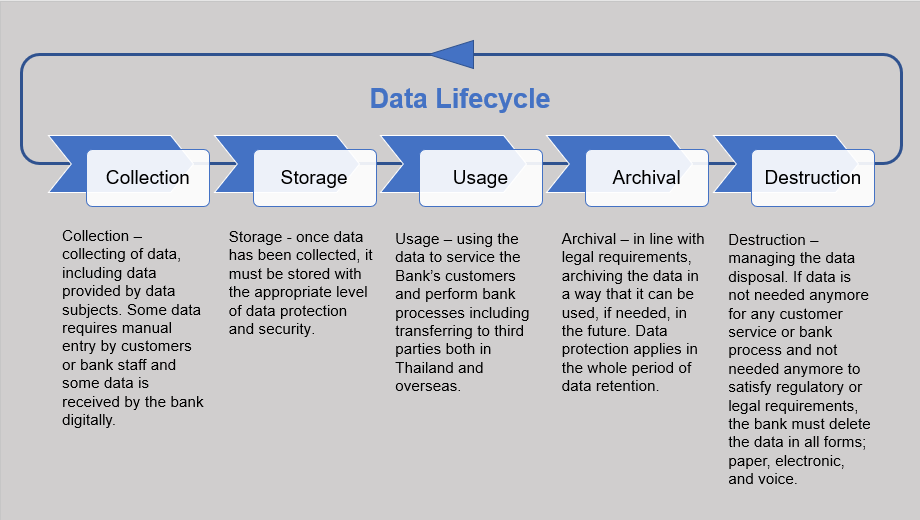Enhancing Cyber Security through Advanced Data Destruction Approaches
Enhancing Cyber Security through Advanced Data Destruction Approaches
Blog Article
The Value of Effective Information Devastation Practices in Safeguarding Sensitive Info and Ensuring Computer Safety And Security
In a period where data breaches are significantly common, the relevance of effective data destruction methods can not be overemphasized. Organizations face significant risks when delicate info is improperly disposed of, possibly bring about unapproved accessibility and severe financial repercussions. Executing robust information damage approaches not only reduces these threats however additionally straightens with lawful conformity needs, making sure that organizations maintain their online reputation and foster customer depend on. The concern stays: what specific techniques can be used to boost these practices, and how can companies properly incorporate them right into their total cybersecurity structure?
Understanding Information Devastation
Recognizing data devastation is essential in today's digital landscape, where delicate details can easily be compromised. Reliable information damage includes not just making certain but removing documents that data is irretrievable through comprehensive approaches. This procedure is essential for companies that handle personal customer info, intellectual property, or internal documents, as any kind of breach can result in extreme economic and reputational consequences.
Information destruction includes numerous strategies, including shredding physical media, degaussing magnetic storage gadgets, and employing software-based remedies that overwrite data several times. Each technique offers a details purpose and has to line up with the level of sensitivity of the details being thrown away. For instance, physical damage is usually liked for hard disk drives containing highly personal information, while software methods could be adequate for less sensitive details.
Moreover, adhering to sector requirements and policies, such as the General Data Protection Policy (GDPR) or the Medical Insurance Mobility and Responsibility Act (HIPAA), is imperative for compliance and to reduce legal risks. Organizations should create a robust information devastation policy, train employees on best practices, and frequently investigate their treatments to guarantee that all delicate information is disposed of securely and efficiently.
Dangers of Inadequate Practices
Inadequate information devastation practices expose companies to significant threats that can have far-ranging consequences. When sensitive details is not effectively thrown away, it continues to be at risk to unauthorized accessibility, which can result in data violations and identification burglary. Such cases not only jeopardize the safety of people yet also taint the organization's credibility, resulting in a loss of client count on and prospective monetary repercussions.
In addition, regulative conformity is increasingly strict in lots of industries. Failing to abide by data damage guidelines can lead to substantial fines and lawsuits versus companies. These charges can draw away and strain financial resources focus from core business procedures.
Furthermore, the misuse of residual information can cause copyright burglary or company espionage, jeopardizing competitive advantages (data destruction). The influence of inadequate information devastation extends past instant financial losses; it can likewise lead to long-lasting damage to brand integrity and market placement

Organizations have to recognize that information protection is not exclusively regarding preventing violations; it likewise includes the liable administration of information throughout its lifecycle. Ignoring efficient information destruction methods can have devastating implications, highlighting the necessity for durable measures to alleviate these dangers.
Best Practices for Data Destruction
Applying reliable information devastation techniques is vital for securing delicate info and keeping compliance with regulatory standards. Organizations ought to adopt my explanation a multi-faceted technique to make sure that data is irretrievable, consequently avoiding unapproved accessibility and prospective violations.
First, data need to be categorized based upon sensitivity, permitting organizations to apply proper devastation methods tailored to the level of threat. For electronic data, utilizing software-based data-wiping tools that follow industry requirements Resources can effectively overwrite existing data. Physical devastation methods, such as shredding or degaussing, are crucial for devices that keep sensitive info, guaranteeing full eradication.
Establishing a clear information retention plan is essential, outlining for how long different kinds of information ought to be preserved prior to damage. Routine audits of information storage space systems are also needed to determine outdated or unneeded information requiring removal.
Additionally, training workers on the importance of information damage and the particular protocols to comply with fosters a society of safety and security within the company. Finally, keeping paperwork of data devastation processes provides accountability and supports compliance with outside policies and internal plans. By sticking to these best techniques, companies can dramatically alleviate the dangers linked with information exposure.
Legal and Compliance Factors To Consider

Failing to conform with these policies can cause extreme penalties, consisting of substantial fines and reputational damage. Organizations has to implement a robust data devastation plan that straightens with these legal structures and offers clear guidelines on the proper methods of information disposal, whether physical shredding or electronic wiping.
Moreover, keeping paperwork of information damage tasks is necessary for showing compliance throughout audits or evaluations. By focusing on legal and conformity considerations, companies can boost their data safety pose and foster depend on with customers and stakeholders, eventually adding to an extra safe and secure data administration atmosphere.
Benefits of Effective Information Damage
Efficient information damage techniques prolong past plain conformity; they use considerable advantages to companies that prioritize them. By making sure that delicate information is irretrievably ruined, organizations reduce the threat of pop over to these guys information violations and the possible economic repercussions connected with them. This aggressive approach not only safeguards against unapproved gain access to yet additionally enhances the total dependability of the organization in the eyes of stakeholders and customers.
Implementing robust data devastation techniques, such as physical damage of storage gadgets or innovative information cleaning techniques, contributes to the fortifying of a company's cybersecurity pose. data destruction. It minimizes the likelihood of copyright burglary and safeguards exclusive info, thereby keeping an one-upmanship on the market

Conclusion
In conclusion, reliable data destruction techniques are crucial for protecting delicate info and boosting general computer security. Inevitably, a dedication to robust data damage approaches promotes a society of duty, consequently strengthening an organization's cybersecurity stance and preserving client depend on.

Report this page